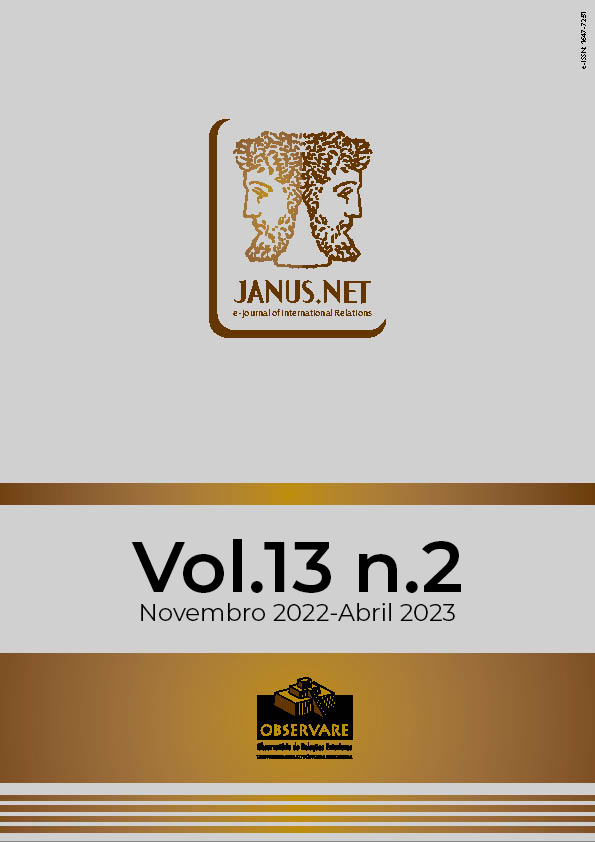O artigo analisa a escala de envolvimento de Grupos Criminosos Organizados Transnacionais
(TOCG) na prática de actos de corrupção, a sua cooperação criminosa conexa com
Corporações Transnacionais (TNCs), bem como as relações públicas nesta esfera, em
particular com base no caso da Ucrânia. É apresentada uma solução para o problema do crime
de corrupção transnacional, em particular, aplicando a teoria do naturalismo social. O
objectivo final do artigo é analisar o problema da corrupção transnacional como “factor de
instabilidade social” e introduzir este termo na circulação científica neste contexto. O artigo
utiliza métodos de conhecimento científico como indução e dedução, bem como métodos
filosóficos e fenomenológicos. De acordo com a investigação, a máfia opera agora à mesma
escala e com a mesma eficácia do que os grupos empresariais globais. As empresas podem
ser comparadas com os governos dos Estados no que respeita à sua influência na economia
do Estado e adopção de decisões apropriadas. Os autores afirmam que as medidas tomadas
pelos Estados individuais para contrariar a pressão dos poderosos TNCs ainda não conduziram
à realização destes objectivos. As elites financeiras e industriais, por sua vez, com a ajuda da
TOCG, tentam impor a sua própria ordem às sociedades que ainda não estão preparadas
devido a diferenças culturais, história, leis, ordem social, mentalidade, etc. É enfatizado que
o nível de crime organizado transnacional e a corrupção ainda não podem ser
significativamente reduzidos nas sociedades locais devido ao facto de os objectivos das elites
e de certos Estados simplesmente não coincidirem. Hoje em dia podemos notar um número
significativo de indícios, em particular – a existência de um fenómeno como a corrupção
transnacional, o que indica que temos uma crise de ordem social no mundo. A corrupção
utilizada pelos TNCs é uma característica obrigatória que permite, entre outras, distinguir o
crime organizado transnacional de outros tipos de actividade criminosa. Podemos notar tal
característica da TOCG como uma simbiose criminosa com as TNCs, que é considerada como
uma violação da ordem pública que conduz a uma regressão correspondente. É possível
alcançar progressos na minimização da corrupção transnacional, em particular com a ajuda
do naturalismo social, através da aplicação dos postulados de que é possível contrariar as
actuais manifestações de vontade e ilusões que existem hoje em dia em todas as esferas da
vida social, incluindo política, economia, moralidade, religião, ciência, arte, direito, etc. O
estudo prova que no mundo moderno, no contexto de mudanças progressivas,
nomeadamente o desenvolvimento de novas tecnologias de informação, na economia, etc.,
foram formadas algumas tendências na criminalidade transnacional, incluindo a corrupção
que continua a aprofundar-se e a corrupção indica o fenómeno, que os autores definem como
um “factor de instabilidade social”.
TRANSNATIONAL ORGANIZED CORRUPTION AS A FACTOR OF SOCIAL INSTABILITY
Doctor of Law, Professor,
Chief Researcher at the Interagency Research Center on Problems of Combating Organized Crime under the
National Security and Defense Council of Ukraine, Kyiv (Ukraine).
Doctor of Law, Professor, Chief of Department of Problems of Law, Criminology and Court System of V.M.
Koretskyi Institute of Researcher at the Interagency Research State and Law of tne National Academy of
Sciences of Ukraine, Kyiv (Ukraine).
Ph.D. in Law, Associate Professor. Chief Researcher at the Interagency Research Center on Problems of
Combating Organized Crime under the National Security and Defense Council of Ukraine, Kyiv (Ukraine).
Ph.D. in Law, Associate Professor of Criminal Law and
Procedure Department, Faculty of Law, National Aviation University, Kyiv (Ukraine)
Resumo
Palavras-chave
Como citar este artigo
Busol, Olena Yu.; Kostenko, Oleksandr M.; Gutsalyuk, Mykhaylo V.; Klymenko, Olga A.
(2022). Transnational organized corruption as a factor of social instability. Janus.net, ejournal of international relations, Vol13 N2, November 2022-April 2023. Consulted [online] in
date of last visit, https://doi.org/10.26619/1647-7251.13.2.7
Artigo recebido em 18 Janeiro, 2022 e aceite para publicação em 29 Setembro, 2022















